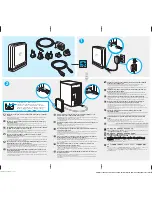
Defining the data for a custom report
62 Avaya CMS Custom Reports
Input Fields That Allow Pattern Matching
CMS can search for values in certain database items according to wildcard search
patterns. As a result, you can create a custom report that allows report inputs based on
character strings, plus either
*
(matches 0 or more occurrences of any character) or
?
(matches on any single character). CMS then includes data for all items that match the
character strings the user entered.
The standard database items that allow this type of searching are:
●
VDN (the value is a VDN number)
●
EXTENSION (the value is an extension number)
●
LOGID (the value is an agent login ID)
●
EQLOC (the value is a 9-digit trunk location number)
●
CWC (the value is a call work code)
●
ROW_DATE
(the value is a date)
In addition, any custom database items that you define as CHAR columns in INFORMIX
also allow this type of searching.
As an example of matching with
*
, if an input field were a
String
type and were
associated with the LOGID database item, the user could enter
1*
and CMS would
include data for all agents with login IDs that start with 1 (1, 10, 1238, 190, and so on,
depending on the switch’s administered login length). As an example of matching with
?
, if
an input field were a
String
type and were associated with the VDN database item, the
user could enter
21?0
, and CMS would include data for all VDNs that start with 21, end
with 0, and have any single character displayed between the 21 and the 0 (2100, 2110,
2120, 2130, and so on).
Note:
If you select
String
for an input field, CMS does not check a user’s inputs
in that field for appropriate read permissions or valid switch parameters. If
you want CMS to check permissions for a VDN input field, you must select
the
VDN
field type. If you want CMS to check switch parameters for a VDN,
login ID, extension, or call work code input field, you must select that field
type, not
String
. In addition, if you select
String
for a field, the user will
not be able to enter Dictionary names. So, again, if you want to let the user
enter VDN, login ID, or call work code names to run a report, you must
select that specific field type, not
String
.
Associate an ACD with the variable field
Enter an
x
in the
Associated ACD
list to associate the variable field with either the
current ACD or a user-selected ACD. You must select an associated ACD if the input field
you are defining is a type listed under the heading
(associated ACD required)
.
















































